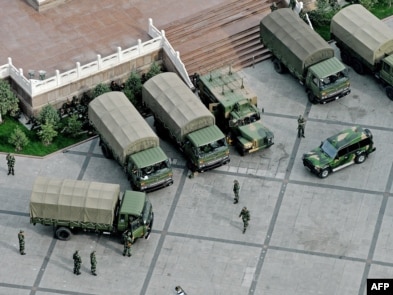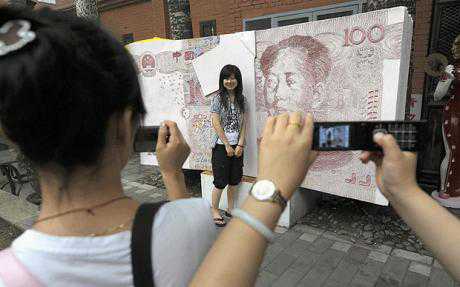By Gideon Levy
 Israel has been dealing one blow after another to the rest of the world. While China has still not recovered from Foreign Minister Avigdor Lieberman’s absence from the reception at its Tel Aviv embassy – a serious punishment for China’s support for the Goldstone report – France is licking its wounds after Prime Minister Benjamin Netanyahu “vetoed” a visit by the French foreign minister to Gaza. And Israel has dealt another blow: Its ambassador in Washington, Michael Oren, will boycott the conference next week of the new Israel lobby J Street.
Israel has been dealing one blow after another to the rest of the world. While China has still not recovered from Foreign Minister Avigdor Lieberman’s absence from the reception at its Tel Aviv embassy – a serious punishment for China’s support for the Goldstone report – France is licking its wounds after Prime Minister Benjamin Netanyahu “vetoed” a visit by the French foreign minister to Gaza. And Israel has dealt another blow: Its ambassador in Washington, Michael Oren, will boycott the conference next week of the new Israel lobby J Street.
China, France and J Street will somehow get by despite these boycotts, Turkey will also recover from the great vacationers’ revolt, and we can expect that even the Swedes and Norwegians will recover from Israel’s loud reprimands. But a country that attacks and boycotts everyone who does not exactly agree with its official positions will become isolated, forsaken and detestable: North Korea of today or Albania of yesterday. It’s actually quite strange for Israel to use this weapon, as it is about to turn into the victim of boycotts itself.
Israel strikes and strikes again. It strikes its enemies, and now it strikes out at its friends who dare not fall exactly in line with its official policies. The J Street case is a particularly serious example. This Jewish organization rose in America along with Barack Obama. Its members want a fair and peace-seeking Israel.
| Advertisement | |
That’s their sin, and their punishment is a boycott.
Oren, meanwhile, is a devoted representative: He also is boycotting. After criticizing Israeli columnists, including this one, in an article in The New Republic for daring to criticize Netanyahu’s speech at the UN – an outrage in its own right – the ambassador-propagandist uses the boycott weapon against a new and refreshing Jewish and Zionist organization that is trying to battle the nationalistic and heavy-handed Jewish-American establishment.
In whose name is Oren doing that? Not in the name of Israeli society, whose ambassador he supposedly is. The former ambassadors from Eastern Europe and the Soviet Union would have acted the same way.
Such aggressiveness is a bad sign. It will drive away our last true friends and deepen our isolation. “A nation alone” has turned into our goal, our isolation has become an aspiration. Whom will we have left after we attack and boycott everyone? Abe Foxman of the Anti-Defamation League? Our propagandist-attorney Alan Dershowitz?
Dividing the world up between absolute good and evil – our side and our enemies, with no middle ground – is a sign of despair and a complete loss of direction. It’s not just our ambassador in Washington, who knows nothing at all about democracy and pluralism and only wants to please his masters. Such behavior – kicking and barking crazily in every direction – is destroying Israel.
Without giving us a chance to voice our opinion, Israel is falling to the status of an international pariah, the abomination of the nations. And whom can we thank for that? Operation Cast Lead, for example. Only the United States remains our automatic and blind ally for all our mistakes. Another democracy that saw its status deteriorating so much would ask itself first and foremost what mistakes it had made.
In Israel our approach is exactly the opposite: The rest of the world is guilty. The Scandinavians are hostile and the Turks are enemies, the French and British hate Israel, the Chinese are only Chinese and the Indians can’t teach us anything.
Any legitimate criticism is immediately labeled here as anti-Semitism, including Richard Goldstone, the Jewish Zionist. We are pushing everyone into a corner roughly and hope they will change their opinions and suddenly be filled with a deep understanding for the killing of children in Gaza. Now America too, even its Jews, are no longer immune to this aggressive Israel mad with grandeur.
The damage is piling up from Beijing all the way to New York. After the J Street boycott even American Jews will know that Israel is not a tolerant, open-minded or liberal country, despite what they are being told.
Now they will know that “the only democracy in the Middle East” is not exactly that, and whoever does not repeat and proclaim its propaganda messages will be considered an enemy – they may also be punished severely.
They should just ask the billion Chinese who are licking their wounds from the mortal blow the Israeli Foreign Minster dealt them personally.
Haaretz


 Chinese troops deployed in Urumqi in September.
Chinese troops deployed in Urumqi in September.




